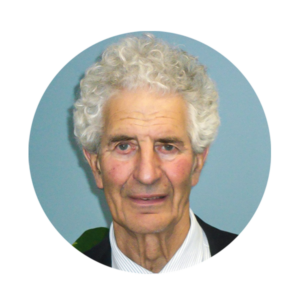This free webinar is open to all, and is organised by ACAMH’s Adverse Childhood Experiences (ACEs) Special Interest Group. The webinar will be led by Philip Graham and Arnon Bentovim.
Philip Graham and Arnon Bentovim are former colleagues who worked together from the 1960s to the 1990s at Great Ormond Street Hospital. They offer this nonagenerian presentation on the basis of their experience.
Booking
Sign up to this FREE webinar at this link or on the Book Now button at the top of the screen, and complete the form that follows. You’ll then receive an email confirmation and a link to the webinar, plus we’ll send you a calendar reminder nearer the time.
- ACAMH Members attending will be eligible for a FREE electronic CPD certificate. Members MUST login to book onto the webinar and get their certificate.
- Non-members can opt to receive an electronic CPD certificate for just £5, select this option at the point of booking. This is a great time to join ACAMH, take a look at what we have to offer
Don’t forget as a charity any surplus made is reinvested back as we work to our vision of ‘Sharing best evidence, improving practice’, and our mission to ‘Improve the mental health and wellbeing of young people aged 0-25’.
Background
There is widespread concern in the UK at the size of the waiting lists for children and young people with mental health problems. Many see this as one of the most worrying features of today’s society. Virtually the only response from government, professional and voluntary organisations is to call for an increase in mental health services for children and young people. At best this will only provide a partial solution as so many children will, after treatment, return to the traumatic situations which caused their problems in the first place.
We are long-retired consultant child and adolescent psychiatrists who worked together at Great Ormond Street Hospital, London for many years from the 1960s to the 1990s. We have retained an interest in our professional field. We would emphasise the importance of also addressing the adverse and often traumatic experiences which have contributed to the development of mental health problems in children and young people.
The list of traumas or adverse childhood events is a long one. It includes all types of abuse (physical, sexual, mental, neglect), as well as bullying, racism, hostile social media, parental disharmony, school absenteeism and academic failure. Underlying all these stresses, however, there is one common factor – poverty or low family income. Of course, some disturbed children live in families that are not poor, – they may even be affluent – but poverty and low income are major underlying stressors frequently giving rise to family disharmony and, indirectly, to child abuse, leading to mental disorders. This is particularly the case for children and young people with conduct disorders and attention deficit hyperactivity disorders that make up around half of mental health problems in the young.
Michael Marmot has drawn attention from his research on health inequality to the devastating effects of poverty. Poverty can be seen as either absolute or relative. The hunger and malnutrition arising from absolute poverty and the shame associated with relative poverty both impact negatively on family life and the quality of child care. Both can be targeted by financial measures that reduce income inequality. The present benefit system is clearly inadequate in the reduction of inequality for this has increased in the UK over recent years. Increasingly, the introduction of a universal basic income (UBI) is seen as likely to be a more effective alternative.
Although the evidence base for positive effects of UBI on the prevalence of mental health problems (mhp) is not strong, there are some encouraging pointers in this direction. Further, there is demographic evidence linking low income with mental health problems (mhp). This is illustrated both by regional differences and by international comparisons, especially with the Scandinavian countries that show both low income inequality and low rates of mhp. Correlation does not prove causation, but clinical experience supports the hypothesis that low income influences rates of mhp.
Alongside reduction of poverty, for example by the establishment of Marmot communities devoted to reducing inequalities, much more could be done from a trauma reduction perspective to tackle the development of mental health problems on a population basis. Schools in financially deprived areas already focus on children receiving free school meals. The recently introduced Holiday and Food programme providing support for disadvantaged students during the school holidays could be greatly expanded. Legislation is already in place in Scotland and Wales to prohibit smacking of children by their parents and there are now moves to introduce similar legislation in England. This might be expected to reduce rates of physical abuse.
A wide variety of professionals are engaged in helping children exposed to trauma as well as to parents-to-be who are at risk of traumatising their children. There is scope to develop trauma-informed practice across services as adopted in Scotland and Wales, to prevent the development of childhood mental health disorders. Relevant skills can be developed by practitioners involved in counselling pregnant mothers with drug, alcohol and mental health difficulties, in safeguarding services, in childcare, in monitoring looked after children, offending behaviour, migration, disruptive behaviour in education, and in the community, paediatric and child health contexts.
While child and adolescent services cannot be involved directly in the alleviation of poverty, there are nevertheless some clear indications for action when children and families from poorer communities are seen. Services need to ensure that such families are in receipt of all the benefits to which they are entitled. Their clinical interventions should take into account the social disadvantages from which these families are suffering, for example by recognising difficulties in accessing services, and collaborating well with relevant community agencies. Finally, political parties with strong poverty reduction programmes should be supported.
A number of influential organisations, including the Resolution Foundation, the Rowntree Foundation, IPPR, Changing Realities and Save The Children are pressing for a major increase in welfare spending to tackle poverty in the UK. We suggest that Young Minds, the Royal College of Psychiatrists and the Royal College of Paediatrics and Child Health should join them.
Learning outcomes
- Provide a picture of the current crisis in mental health, including lengthy waiting lists, harmful impact on children and young people, demands to increase the child mental work force – e.g. the £2.3bn to expand the number of mental health support teams in schools to reach at least 50% of pupils in England by the end of March 2025.
- Review the compelling new evidence that around half of all mental disorders occur by 18 years old and are shaped by both genetic factors, and social factors that occur early in life.
- Review the evidence on the pervasive traumatically harmful impact of poverty (Rose 2024). Poverty is an underlying factor in all the major stresses influencing the development of mental health problems, namely: physical, sexual, and emotional abuse, neglect, bullying, housing insecurity, job insecurity, maternal stress during pregnancy, academic failure, forced migration and displacement, discrimination, brain dysfunction.
- Review research which demonstrates that the Scandinavian countries that have low-income inequality also have low rates of mental health problems.
- Review the evidence that alleviating poverty reduces rates of mental health problems. In this connection, to consider the importance of operationalising the Marmot principles of ‘Curing a Broken Land’. These include reducing child poverty, investing in pre-school and restoring closed Sure Start centres which continue to demonstrate a beneficial effect into the teens.
- Discuss the importance of raising awareness about traumatic roots of mental health problems of children’s development seen in services across the spectrum – parental mental health and substance abuse, and offending, interpersonal violence, looked after children, disruptive behaviour in schools. The importance of the adoption of Trauma Informed Practice as a key ingredient to reduce mental health.
- List clinical interventions which take account of social disadvantage and the social determinants of mental problems.
- Propose a way forward.
About the speakers

Philip is Emeritus Professor Child Psychiatry, UCL, London. He was Professor of Child Psychiatry at the Institute of Child Health, London and Honorary Consultant in Child Psychiatry at Great Ormond Street Children’s Hospital, London. He has published a number of books in the specialty, including Child Psychiatry: A Developmental Approach, Oxford University Press, now in its fourth edition and Where There Is No Child Psychiatrist, Cambridge University Press. Recently he has published peer-reviewed papers on trans children and brain changes in adolescence as well as a number of books, including Men and Sex and Going Gentle, a guide to a better terminal illness.
In the distant past, he was Coordinating Consultant to the WHO Child Mental Health Programme and Adviser in Child Psychiatry to the Chief Medical Officer. He served twice as Chair of the ACPP, then ACAMH.

Arnon was a Consultant Child Psychiatrist at the Great Ormond Street Children’s Hospital and the Tavistock Clinic and an Honorary Senior lecturer at the Institute of Child Health UCL. He is a Visiting Professor at the Royal Holloway University of London, and Director of Child and Family Training. At Great Ormond Street, he was responsible for Child Protection and initiated a number of services including the first Sexual Abuse Assessment and Treatment Service in the UK. A number of books and peer reviewed papers of the effectiveness of the approach were published. He edited a text with Jenny Gray in 2012 ‘Eradicating Child Maltreatment’ to mark 50 years since the publication of Henty Kempe’s “The Battered Child Syndrome’.
He and colleagues founded the Association and Institute of Family Therapy, and he was President of the International Family Therapy Association. He co-edited a series of texts on “Family Therapy, complementary frameworks of theory and practice’ and published ‘a ‘Family Assessment Guide’.
Child and Family Training was established in 2000 to provide training in evidence-based practice. This included the Hope for Children and Families approach to intervention, and the development of a series of Modular Intervention guides in collaboration with Bruce Chorpita UCLA.
Arnon chairs the ACAMH Adverse Childhood Experiences Special Interest group.
Booking
Sign up to this FREE webinar at this link or on the Book Now button at the top of the screen, and complete the form that follows. You’ll then receive an email confirmation and a link to the webinar, plus we’ll send you a calendar reminder nearer the time.
- ACAMH Members attending will be eligible for a FREE electronic CPD certificate. Members MUST login to book onto the webinar and get their certificate.
- Non-members can opt to receive an electronic CPD certificate for just £5, select this option at the point of booking. This is a great time to join ACAMH, take a look at what we have to offer
Don’t forget as a charity any surplus made is reinvested back as we work to our vision of ‘Sharing best evidence, improving practice’, and our mission to ‘Improve the mental health and wellbeing of young people aged 0-25’.

